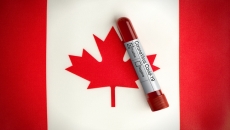British Columbia's overdose deaths spiked in March and April reaching the same heights recorded over a year earlier.
The BC Coroners Service says 117 people died last month, matching the number of fatalities in March 2019, followed by a steady decline in deaths every month since then.
However, the service says 112 deaths in March and 117 in April mark the first time since late 2018 that the province has recorded more than 100 fatalities two month in a row.
The service reports 78 deaths in January, and 75 in February this year
More than 4,700 people have died of overdoses since the B.C. government declared a public health emergency in early 2016.
Chief coroner Lisa Lapointe says efforts since late March to improve access to a safer supply of drugs in B.C. are encouraging but the death rate from illicit drugs is still the highest in Canada.
"We continue to recommend a regulated, evidence-based, supportive treatment and recovery system as an important pillar in preventing future deaths."
Prime Minister Justin Trudeau has maintained that decriminalization of drugs is not on his agenda.
Since late March, the province has been providing people at risk of overdose with a take-home supply of a prescribed alternative to potentially deadly street drugs over concerns about a more toxic drug supply during the pandemic.
B.C. also launched a free app called Lifeguard last week to help prevent overdose deaths. It serves as a check-in system that requires drug users to respond at certain time intervals in order to relay that they are OK.
It's meant to be opened by users before they take their dose, the Provincial Health Services Authority says in a release.
After 50 seconds, the app sounds an alarm, prompting drug users to hit a button to stop it.
If they fail to do that, an alarm grows louder and after 75 seconds the app uses a text-to-voice call to alert 911 dispatchers to a potential overdose.
Mental Health and Addictions Minister Judy Darcy says the province is facing down the overdose crisis and the COVID-19 pandemic at the same time so the app is a positive resource for those who use drugs.
"Knowing that the majority of people who use drugs use alone in shelters, hotels, or at home, in addition to the challenges of physical distancing, the Lifeguard app is a new and innovative approach that can directly link people to emergency responders if an overdose does occur," she says in a release.
Vancouver, Surrey and Victoria have had the highest number of deaths this year, with 71 per cent of fatalities occurring among those aged 19 to 49.
Data from the coroners service show the highest number of fatalities during the first four months of any year since 2010 occurred in 2017, when 556 people died.

.jpg)




